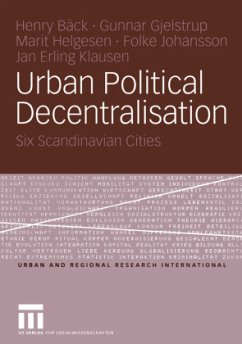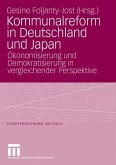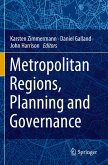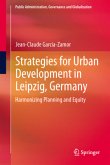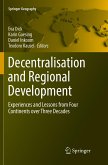Intra-municipal decentralisation in Scandinavian cities is unique with regard to the volume of services devolved to urban districts. The book investigates the democratic and efficiency effects of decentralisation reforms in six major Scandinavian cities. Special attention is given to consequences of different institutional arrangements as well as to providing an understanding of reform processes. Data for the descriptions and analyses are provided by a number of sources: Surveys with district politicians and samples of citizens, published evaluation reports and interview data from three case studies especially done for this study. Institutional arrangements differ between Copenhagen with relatively autonomous districts and Swedish and Norwegian cities whose districts are more closely integrated with the centre. These differences do matter, both with regard to reform effects and the trajectories of reform processes. Institutionalisation, adaptation and power seeking behaviour of political parties are important factors for understanding the reform processes.
Starting in the late 1980s and accelerating around the tum of the century, Scandinavia's big cities started decentralising their political, administrative and service-provider organisations. Oslo was first out with its bydelsutvalg, but Goteborg soon followed by introducing stadsdelsniimnder. At the tum of the millennium such decentralised political bodies were in place in the six cities that we have chosen for special scrutiny in this book: Copenhagen in Denmark, Bergen and Oslo in Norway, and Goteborg, Malmo and Stockholm in Sweden. Some of us had been involved in single-city evaluation studies, and, having reported our findings, we came up with the idea that it might be worthwhile to compare our findings. Decentralised political bodies of this kind are by no means unique to Scandinavia, but it seemed as if the very high degree of decentralisation in Scandinavia was quite unique. Central city authorities and mayors had relinquished around three quarters of their budg of such far ets. Describing and communicating the Scandinavian experiences reaching decentralisation also seemed to be a good idea. With funding from the Joint Committee for Nordic Research Councils for the Humanities and the Social Sciences, we were able to start the project in 2000. The preparations for the book included an inventory of the surveys conducted in the six cities during the course of the evaluation studies. We collected all these data sets and compiled a common data set that was distrib uted to all members of the group.
Hinweis: Dieser Artikel kann nur an eine deutsche Lieferadresse ausgeliefert werden.
Starting in the late 1980s and accelerating around the tum of the century, Scandinavia's big cities started decentralising their political, administrative and service-provider organisations. Oslo was first out with its bydelsutvalg, but Goteborg soon followed by introducing stadsdelsniimnder. At the tum of the millennium such decentralised political bodies were in place in the six cities that we have chosen for special scrutiny in this book: Copenhagen in Denmark, Bergen and Oslo in Norway, and Goteborg, Malmo and Stockholm in Sweden. Some of us had been involved in single-city evaluation studies, and, having reported our findings, we came up with the idea that it might be worthwhile to compare our findings. Decentralised political bodies of this kind are by no means unique to Scandinavia, but it seemed as if the very high degree of decentralisation in Scandinavia was quite unique. Central city authorities and mayors had relinquished around three quarters of their budg of such far ets. Describing and communicating the Scandinavian experiences reaching decentralisation also seemed to be a good idea. With funding from the Joint Committee for Nordic Research Councils for the Humanities and the Social Sciences, we were able to start the project in 2000. The preparations for the book included an inventory of the surveys conducted in the six cities during the course of the evaluation studies. We collected all these data sets and compiled a common data set that was distrib uted to all members of the group.
Hinweis: Dieser Artikel kann nur an eine deutsche Lieferadresse ausgeliefert werden.

